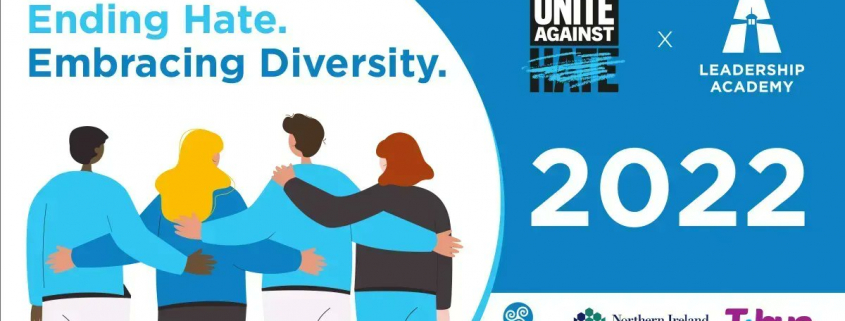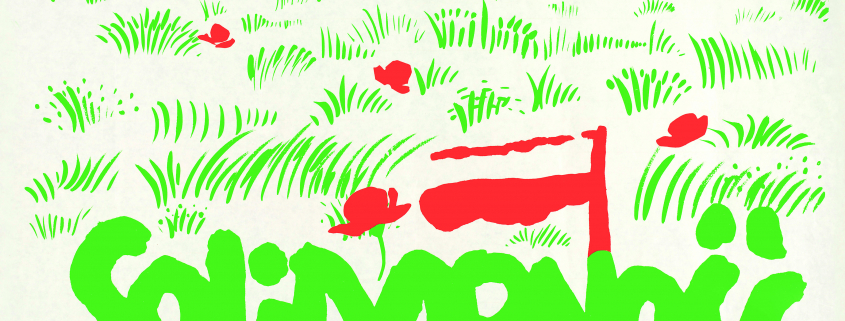Leadership Academy x UAH: Ending Hate. Embracing Diversity.
Join us for a series of three online workshops to explore how through understanding bias, challenging misconceptions, and the development of better communications skills, we can help to eradicate hate, embrace diversity and become better co-workers, neighbours and citizens.
- Session 1: “Without Bias” with Deepa Mann-Kler, Diversity and Inclusion Specialist
This session will explore and highlight how bias impacts all of us, what are the triggers, and what we can do to mitigate the impact of bias.
- Session 2: “Building Braver Communities” with Sughra Ahmed, Director of Education, Robert F Kennedy Human Rights UK
This session will challenge and explore misconceptions about ethnic and religious minorities and help us to better understand the issues affecting our communities, today.
- Session 3: “The Better Way” with Dorcas Crawford, Conflict Management Consultant, The Better Way
In this session we will look at the skills that help us manage conflict in a healthy, respectful non-combative way.
Group 1
Tuesday evenings: 6pm – 7.30pm
- Tue, 8 Feb
- Tue, 15 Feb
- Tue, 22 Feb
Register at: https://tinyurl.com/ya6bzmcx
Group 2
Thursday mornings: 10am – 11.30am
- Thurs, 10 Feb
- Thurs, 17 Feb
- Thurs, 24 Feb
Register at: https://tinyurl.com/3ucf49jf
Our contributors:
Deepa Mann-Kler, Diversity and Inclusion Specialist
Deepa Mann-Kler is Chief Executive of Neon a health technology company; Visiting Professor In Immersive Futures with Ulster University; has 14 years Non-Executive leadership experience with a cross sector exposure across the UK and is passionate about delivering change in equality, diversity and inclusion. As a thought leader and TEDx speaker she keynotes at conferences on the intersection of technology, innovation, diversity, ethics, bias, culture, data, health and wellbeing through compelling storytelling. Deepa is author of the first report on race discrimination with policy recommendations for the public sector in Northern Ireland “Out Of The Shadows.”
Sughra Ahmed, Director of Education, Robert F Kennedy Human Rights UK
Sughra Ahmed, Director of Education at Robert F. Kennedy Human Rights, UK, specialises in human rights education, enabling schools and young people to take a person-centered approach in understanding global human rights and explore the power of agency in creating impactful change.
She is also Founder Director of Bridging Our Divides, an organisation that seeks to build a collective working towards the common good – for which the key principles are listening, understanding, and creating progressive grassroots change by working with people from all walks of life in some of the most socio-economically deprived parts of England.
Working in a range of religious capacities, she has spent time in the UK and USA exploring contextual theology and religious expressions across communities of faith and belief. Most recently, as Associate Dean for Religious Life, at Stanford University, she worked with young people helping them to find meaning and purpose as they moved through their academic lives.
Dorcas Crawford, Conflict Management Consultant, The Better Way
Dorcas is a recovering lawyer, having spent 34 years in Belfast law firm, Edwards & Co. Solicitors where she was Senior Partner until 2021. Dorcas qualified as a mediator in 2008 and in 2015 launched ‘The Better Way’, a specialist conflict management service. She sold her law firm in April 2021, retiring from the law to pursue her passion for helping people to find solutions for conflict through training, facilitation and mediation. Dorcas is well known as a business leader in NI, particularly for her innovative Twitter networking initiative #Belfasthour which became known as one of the most effective online marketing communities for SME’s. Dorcas is a committed supporter of Bowel Cancer UK and is 2021 President of Lean In Ireland.


